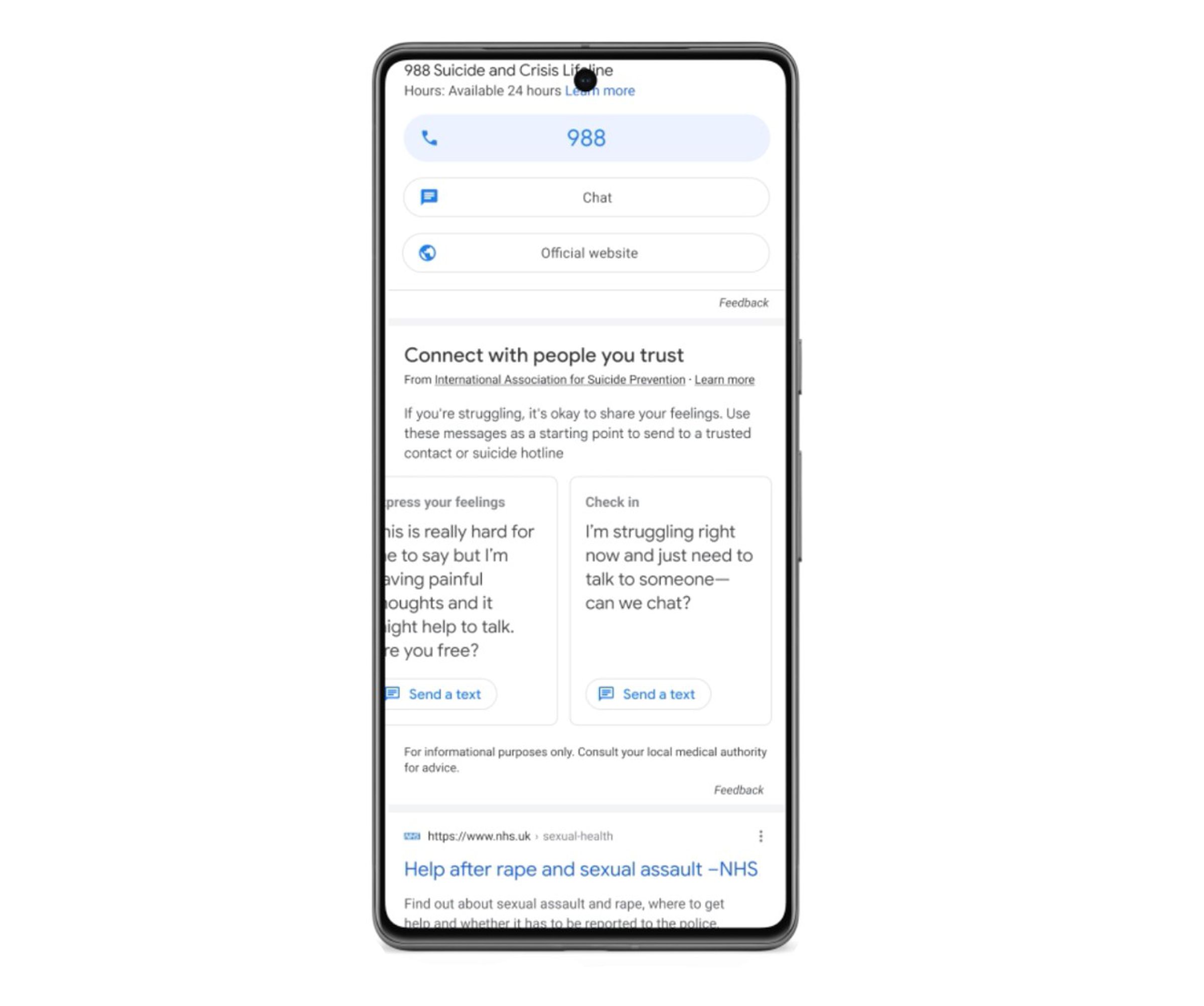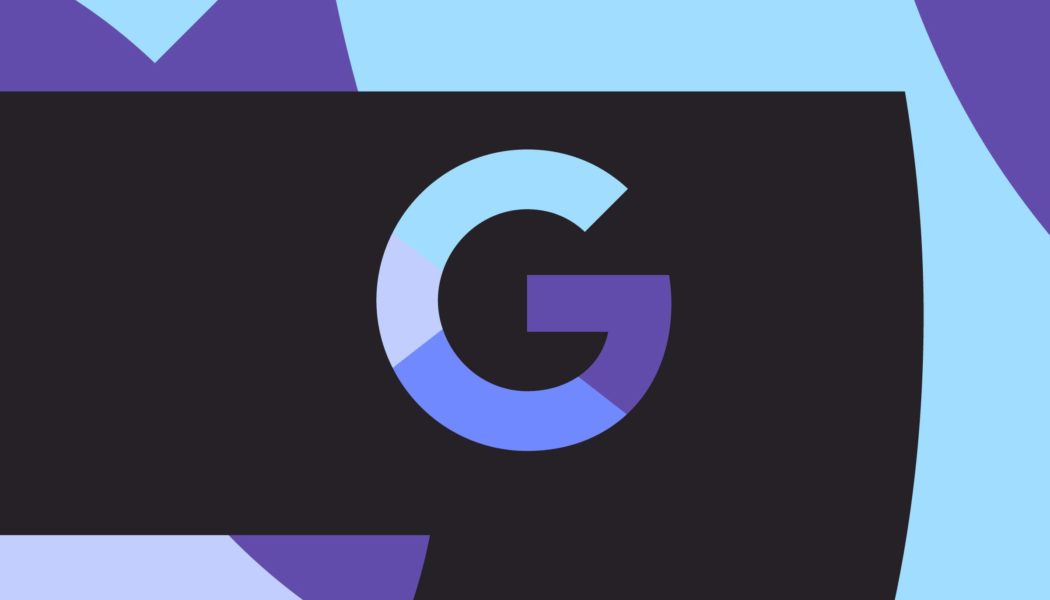Google will display the prompts when users search for a suicide-related term.
Share this story

Google will soon start displaying prewritten text messages that appear when users search for suicide-related terms. These prompts are supposed to help people start a difficult conversation during a mental health crisis and were created in partnership with the International Association for Suicide Prevention.
In the US:
Crisis Text Line: Text HOME to 741741 from anywhere in the US, at any time, about any type of crisis.
988 Suicide & Crisis Lifeline: Call or text 988 to contact what was formerly known as the National Suicide Prevention Lifeline. The original phone number, 1-800-273-TALK (8255), is available as well.
The Trevor Project: 1-866-488-7386
Outside the US:
The International Association for Suicide Prevention lists a number of suicide hotlines by country. Click here to find them.
Befrienders Worldwide: https://www.befrienders.org/need-to-talk
The message options will appear directly beneath the information for the 988 Suicide & Crisis Lifeline, which Google already surfaces when people search for suicide-related terms. It will encourage users to “connect with people you trust,” with each prompt featuring a “send a text” button that opens and pastes the prompt into a user’s text messaging app. It’s not clear whether these messages will appear on Google’s desktop site, but we’ve reached out to Google for more information.
“When someone is in a vulnerable situation, it can be difficult to put this experience into words and know what to say to ask for help,” Megan Jones Bell, Google’s director of consumer and mental health, writes in a blog post. “These pre-written prompts, developed in partnership with the expertise of the International Association for Suicide Prevention, reduce the stigma of reaching out to ask for help, which is shown to help people get support in moments of crisis.”


Google started using artificial intelligence to detect searches from people in crisis last year, allowing the engine to point them toward the resources they may need.
On YouTube, Google recently started removing content that promotes eating disorders and began adding 18 and older age restrictions to videos about eating disorder recovery. It also added crisis center resource panels beneath eating disorder-focused videos and search results.









